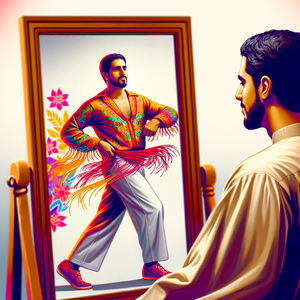The Evolution of Coach: From Luxury to Accessible Fashion

Founded in 1941 as a small workshop in New York City, Coach began its journey crafting leather goods with a strong emphasis on quality and craftsmanship. For decades, the brand was synonymous with luxury and sophistication, attracting clientele who valued exclusivity and the prestige associated with owning Coach products. Throughout the 20th century, Coach positioned itself as a premium brand, with its leather handbags becoming must-have items for fashion-forward individuals. However, as the fashion landscape evolved, so did consumer attitudes towards luxury. The rise of fast fashion and the democratization of style signaled a significant shift in market dynamics, prompting Coach to rethink its strategy to maintain its relevance.
The Shift Towards Accessibility
In the early 2000s, Coach embarked on a journey to broaden its appeal. Recognizing that luxury fashion was increasingly becoming accessible to a wider audience, the brand initiated several key strategies aimed at reaching a diverse demographic: Expanded Product Lines: Coach began diversifying its product offerings by introducing more affordable lines alongside its high-end collections. This included collaborations with contemporary designers and the launch of Coach Outlet stores, which provided consumers access to previous season’s collections at reduced prices. These outlets became pivotal in establishing a new market segment for the brand, allowing consumers to enjoy Coach products without the associated luxury price tag. Targeting a Younger Audience: With millennials and Gen Z emerging as significant consumer groups, Coach adapted its marketing strategies to resonate with younger shoppers. Leveraging social media platforms like Instagram, engaging with influencers, and embracing a more playful, modern aesthetic in its designs have helped Coach connect with this demographic. By showcasing its products in a relatable context, Coach has successfully captured the attention of a new generation of consumers. Increased Brand Accessibility: Coach made strides in enhancing its retail footprint by establishing a presence in outlet malls and online platforms. This strategy allowed the brand to reach consumers who may have previously found it unattainable, fostering a more inclusive brand image. The emphasis on accessibility has also created opportunities for Coach to engage with customers in ways that reflect their lifestyles and aspirations.
Impact on Customer Base and Market Presence
The transformation of Coach from a luxury brand to one that emphasizes accessibility has had profound implications for its customer base and market presence: Broader Demographic Appeal: With its accessible pricing and diverse product offerings, Coach has attracted a wider range of customers, from young professionals to fashion-savvy students. This inclusivity has helped the brand maintain relevance in a competitive landscape, appealing to various consumer segments. Increased Market Share: By tapping into the growing demand for affordable luxury, Coach has successfully expanded its market share. The brand's ability to offer high-quality products at accessible price points enables it to compete with both luxury and fast fashion retailers, positioning itself as a player in the evolving fashion industry. Brand Loyalty and Community Engagement: Coach’s evolution has fostered a sense of community among its customers. By engaging with its audience through social media and brand experiences, Coach has cultivated a loyal following that appreciates both the quality and accessibility of its offerings. This community-driven approach has further solidified the brand's standing in the market.
Supporting Examples and Evidence
Several key initiatives illustrate Coach's successful repositioning in the fashion industry: Coach's Collaborations: Partnerships with popular figures such as Selena Gomez have helped Coach maintain a fresh image while appealing to younger consumers. Limited-edition collections that highlight these collaborations create excitement and exclusivity, even within the framework of accessibility. Sustainability Efforts: To align with contemporary consumer values, Coach has embraced sustainability initiatives aimed at reducing environmental impact. This includes using eco-friendly materials and committing to responsible sourcing practices. Such efforts resonate with today’s conscious consumers, enhancing the brand's appeal. Outlet Expansion: The strategic expansion of Coach Outlet stores has resulted in a significant increase in foot traffic and sales. These outlets have become a critical aspect of Coach's retail strategy, allowing the brand to reach value-seeking consumers without compromising on style.
The evolution of Coach from a luxury brand to an accessible fashion powerhouse exemplifies the brand's ability to adapt to changing consumer preferences and market dynamics. By embracing inclusivity, expanding its product offerings, and fostering community engagement, Coach has successfully navigated the complexities of the modern fashion landscape. As the brand continues to evolve, its journey serves as a case study in understanding the delicate balance between luxury and accessibility, ultimately shaping the future of fashion retail. This transformation not only reflects Coach's commitment to its customers but also underscores the broader trends within the fashion industry, where accessibility increasingly reigns supreme.
Fashion Brand Manager
Coach, Ralph Lauren, Michael Kors, and other fashion retailers
Responsibilities
Develop and implement brand strategies to enhance market presence and customer engagement.
Analyze market trends and consumer behavior to identify opportunities for brand growth and product diversification.
Collaborate with cross-functional teams, including design, marketing, and sales, to ensure brand consistency across all channels.
Required Skills
Strong analytical skills with experience in market research and competitive analysis.
Excellent communication and leadership abilities to drive brand initiatives.
Familiarity with digital marketing strategies and social media engagement.
E-commerce Merchandising Specialist
Coach, ASOS, Nordstrom, and other online retailers
Responsibilities
Curate product assortments for online platforms, ensuring alignment with brand identity and customer preferences.
Monitor and analyze online sales performance, making data-driven recommendations for product placement and promotions.
Collaborate with marketing teams to develop online campaigns that enhance product visibility and drive traffic to the e-commerce site.
Required Skills
Proficiency in e-commerce platforms and tools, along with strong analytical capabilities.
Understanding of visual merchandising principles and online consumer behavior.
Experience in inventory management and demand forecasting.
Sustainability Coordinator
Coach, Patagonia, Reformation, and other eco-conscious brands
Responsibilities
Develop and implement sustainability initiatives aimed at reducing the environmental impact of the brand's operations and products.
Collaborate with suppliers and manufacturers to ensure sustainable sourcing practices are upheld.
Engage with marketing teams to communicate sustainability efforts to consumers and enhance brand reputation.
Required Skills
Knowledge of sustainability practices within the fashion industry and relevant certifications (e.g., LEED, ISO 14001).
Strong project management skills to oversee sustainability initiatives from conception to execution.
Excellent interpersonal skills for collaboration with various stakeholders.
Social Media Marketing Specialist
Coach, Nike, Lululemon, and other brands focusing on digital engagement
Responsibilities
Create and manage social media content that resonates with target demographics, particularly younger consumers.
Analyze engagement metrics and adjust strategies to enhance social media presence and brand loyalty.
Collaborate with influencers and brand ambassadors to amplify brand messaging and increase reach.
Required Skills
Proficiency in social media platforms and marketing tools (e.g., Hootsuite, Google Analytics).
Strong writing skills and creativity to produce engaging content.
Ability to stay current with social media trends and consumer behavior.
Product Development Designer
Coach, Zara, H&M, and other fashion brands
Responsibilities
Design and develop new product lines that align with brand vision and consumer trends toward accessibility.
Conduct material sourcing and collaborate with manufacturers to ensure quality and sustainability standards are met.
Work closely with marketing and sales teams to ensure product designs meet market needs and consumer expectations.
Required Skills
Proficiency in design software (e.g., Adobe Illustrator, Photoshop) and understanding of fashion design principles.
Strong knowledge of textile and material properties, along with a keen eye for detail.
Experience in product lifecycle management and collaborative design processes.


